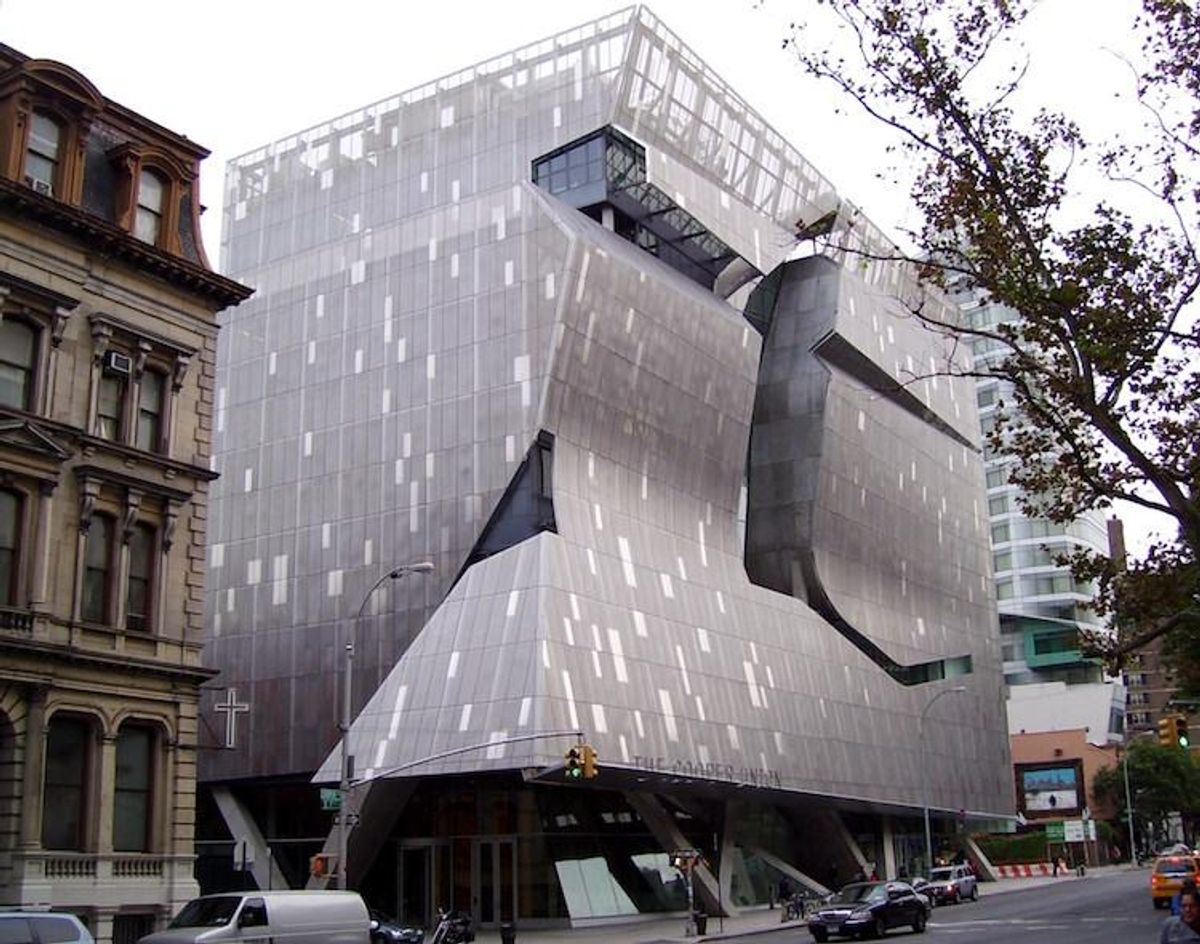One of the first colleges to accept black students and women, the Cooper Union is again on the forefront of making progressive moves, this time for LGBTQ acceptance.
The engineering and arts school has decided to strip all the "men" and "women" signs off its restroom doors in an effort to make them gender-neutral. The trans-friendly move comes after two-years of intense pressures from the student body, student activists previously protesting through ripping the gender signs off themselves, and penning "degendered" and simply "bathroom" on the restroom doors.
"When there's a gendered space, there's a sense of ownership to that space," Bill Mea, president of Cooper Union, told the Guardian on the school's bold decision. "When people see someone who they think doesn't belong there, it can create stress for everyone. So we thought, let's just take that away."
The newspaper also asked students about their issues with the gendered restrooms. For one engineering student, the nearest single-occupancy restroom was eight floors below their lab. "For a couple of months, I stopped doing work in the lab," the student, identified as L., said. "It got to the point where I couldn't do any schoolwork."
And Sarah Schmitt, a student, spoke on the administration's initial do-nothing response to students' complaints.
"Well, we can change the signs, but that's not going to change how you're going to be policed. And what we said was, it doesn't really matter if it changes right away. The icon on the bathroom is no longer validating that policing."
Numerous colleges have been making concentrated efforts to create gender-neutral campuses. A few years ago, New York University began giving students the option of gender-inclusive housing. It allowed students to reside in gender-neutral suites, regardless of their legal sex or gender expression.
However, that option was not available to freshmen, only to upperclassmen and graduate students.
Meanwhile, Vanderbilt University has employed gender-neutral pronouns in its handbook and on its website to foster, "a community that is welcoming and inclusive to individuals of all gender identities and expressions," as the school wrote in an official statement.
But for every step forward for the trans community, there appears to be two steps back. North Carolina recently passed a law, known as House Bill 2, preventing cities and towns from passing laws prohibiting discrimination against LGBT people in public accommodations.




















































































